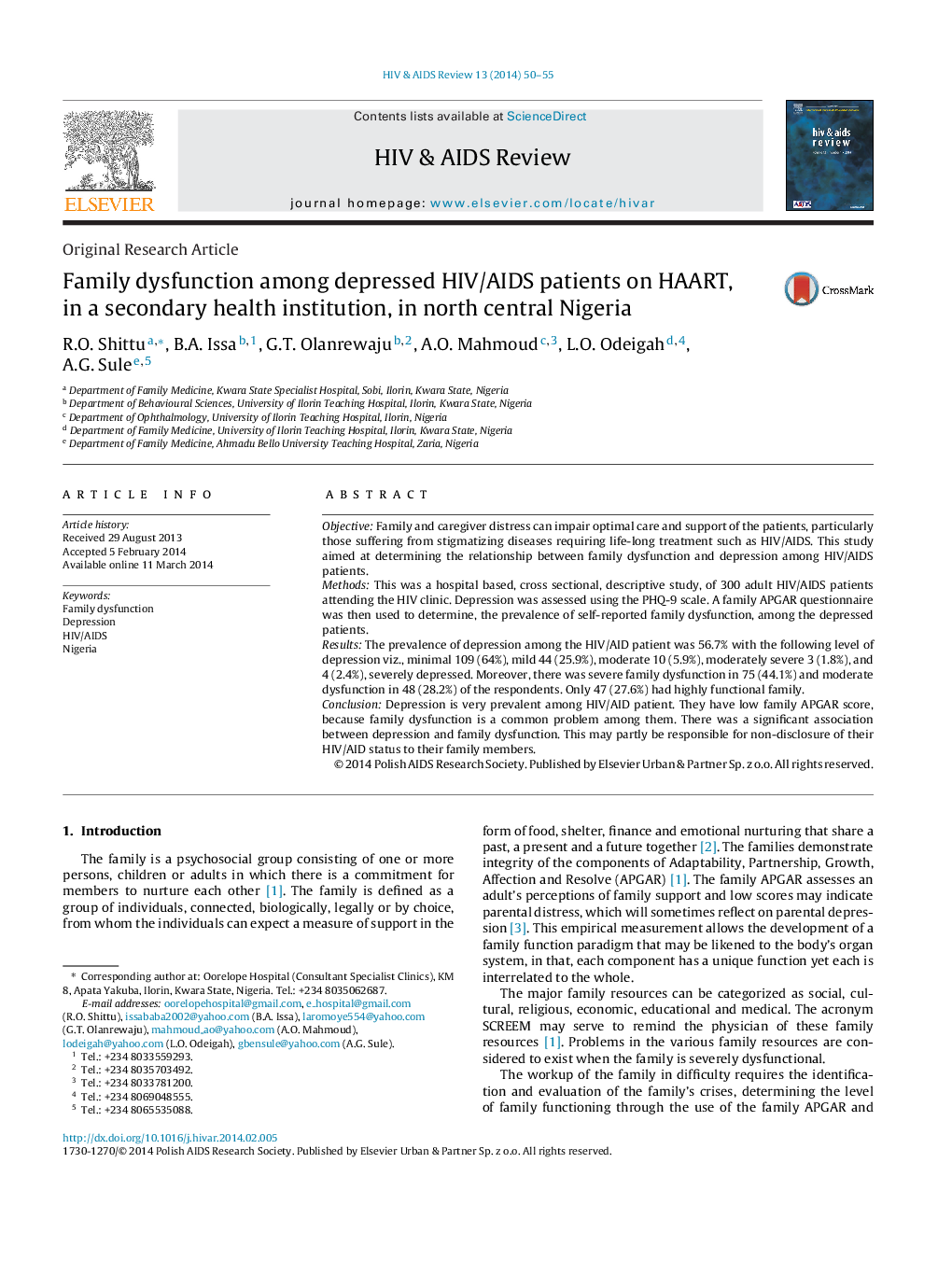| Article ID | Journal | Published Year | Pages | File Type |
|---|---|---|---|---|
| 3332343 | HIV & AIDS Review | 2014 | 6 Pages |
ObjectiveFamily and caregiver distress can impair optimal care and support of the patients, particularly those suffering from stigmatizing diseases requiring life-long treatment such as HIV/AIDS. This study aimed at determining the relationship between family dysfunction and depression among HIV/AIDS patients.MethodsThis was a hospital based, cross sectional, descriptive study, of 300 adult HIV/AIDS patients attending the HIV clinic. Depression was assessed using the PHQ-9 scale. A family APGAR questionnaire was then used to determine, the prevalence of self-reported family dysfunction, among the depressed patients.ResultsThe prevalence of depression among the HIV/AID patient was 56.7% with the following level of depression viz., minimal 109 (64%), mild 44 (25.9%), moderate 10 (5.9%), moderately severe 3 (1.8%), and 4 (2.4%), severely depressed. Moreover, there was severe family dysfunction in 75 (44.1%) and moderate dysfunction in 48 (28.2%) of the respondents. Only 47 (27.6%) had highly functional family.ConclusionDepression is very prevalent among HIV/AID patient. They have low family APGAR score, because family dysfunction is a common problem among them. There was a significant association between depression and family dysfunction. This may partly be responsible for non-disclosure of their HIV/AID status to their family members.
